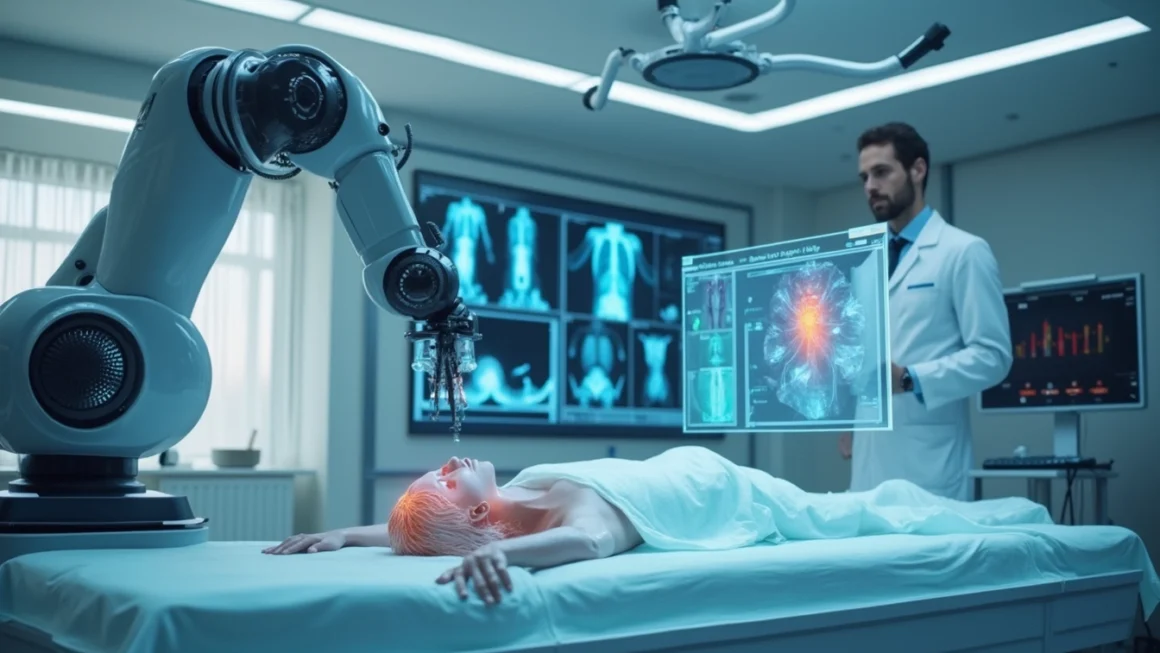Artificial Intelligence in Healthcare: Revolutionizing the Industry
Table of Contents
The evolving world of technology has brought forward a revolutionary change in various sectors, with healthcare being no exception. Artificial Intelligence (AI) in healthcare is transforming the way patients are diagnosed, treated, and managed. This technological advancement promises to bring unprecedented improvements in medical efficiency and patient outcomes. But how exactly is AI reshaping healthcare? Let’s delve into some pivotal aspects.
The Role of AI in Diagnosis
One of the most significant contributions of AI in healthcare is its capability to enhance diagnostic processes. AI algorithms, often trained using vast datasets, can detect patterns that may be missed by the human eye. For instance:
- AI can be utilized in imaging departments to identify abnormalities in X-rays or MRIs, enabling radiologists to make more accurate diagnoses.
- Machine learning models assist in predicting patient risks and potential diseases, even before symptoms appear, ensuring early intervention and management.
AI in Treatment Management
AI is not only revolutionizing diagnosis but also reshaping treatment management. Its applications include:
- Personalized treatment plans: AI systems analyze data from numerous sources, such as patient history and genomic information, to tailor treatment plans uniquely suited to individual needs.
- Robotic surgery: AI-driven robots assist surgeons with precision that minimizes risks and improves recovery times.
The Impact on Patient Experience
Enhancing patient experience is at the heart of healthcare transformation. AI plays a significant role in achieving this through:
- Automating administrative tasks like scheduling and billing, reducing waiting times and increasing service efficiency.
- Enabling telemedicine, which allows patients to consult doctors remotely, thus offering convenience and flexibility.
Challenges and Ethical Considerations
Despite its potential, the integration of AI in healthcare is not without challenges. These include concerns about data privacy, the ethical use of AI, and the need for stringent regulations. Healthcare providers must ensure:
- Data Security: Protecting sensitive patient data from breaches is paramount.
- Bias Management: AI systems must be carefully monitored to eliminate any form of bias in medical decision-making.
The Future of AI in Healthcare
Looking ahead, the potential for AI in healthcare is virtually limitless. Future advancements might see greater integration of AI with Internet of Things (IoT) devices, creating smart and connected healthcare ecosystems. Moreover, continuous research and development are likely to produce even more sophisticated AI tools that can mimic and surpass human abilities in diagnosis and treatment.
Conclusion
The integration of artificial intelligence in healthcare is paving the way for a more precise, efficient, and inclusive approach to patient care. While challenges remain, the benefits significantly outweigh the hurdles, promising a future where technology and medicine go hand in hand to improve global health. As healthcare continues to embrace AI, it is crucial to maintain a balance between technological potential and ethical responsibility.
To explore more about technology-driven solutions, visit my portfolio website.




